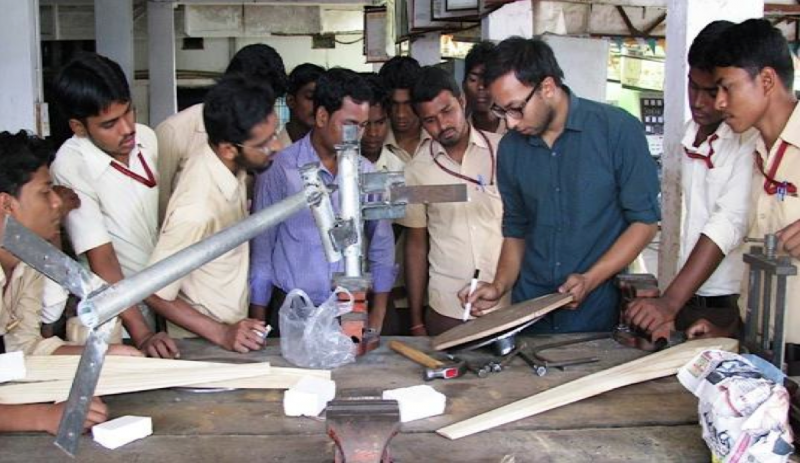 Despite the huge commercial success that India has achieved in establishing large-scale wind energy systems, the use of small wind energy systems (SWES) is extremely limited and the market is still immature. The project aims to demonstrate that SWES are an effective option for rural electrification in tribal areas of the Kalahandi district of Odisha, India. These SWES will be installed in 3 different communities benefiting 60 tribal and marginalised households.
The project will transfer skills and knowhow to local manufacturers and user groups in order that they can produce, operate and maintain small wind turbines. The project is being carried out by Practical Action South Asia Regional Office based in Nepal with its local implementing partner "Gram Vikas" and in close cooperation with local producers and communities for the project design and implementation, and for the dissemination of knowledge learnt from the project.
https://www.youtube.com/watch?v=nt9SMGlrous
Despite the huge commercial success that India has achieved in establishing large-scale wind energy systems, the use of small wind energy systems (SWES) is extremely limited and the market is still immature. The project aims to demonstrate that SWES are an effective option for rural electrification in tribal areas of the Kalahandi district of Odisha, India. These SWES will be installed in 3 different communities benefiting 60 tribal and marginalised households.
The project will transfer skills and knowhow to local manufacturers and user groups in order that they can produce, operate and maintain small wind turbines. The project is being carried out by Practical Action South Asia Regional Office based in Nepal with its local implementing partner "Gram Vikas" and in close cooperation with local producers and communities for the project design and implementation, and for the dissemination of knowledge learnt from the project.
https://www.youtube.com/watch?v=nt9SMGlrous
Projects with same technology
Exchange: A Country Level Market Assessment for Small Wind Turbines
This project aims aims to support small wind turbine technology in Nepal by conducting a detailed national market assessment for small wind turbines and consolidating existing experience in the development and implementation of small wind turbines in the country.
Exchange: “Where the Winds Meet” – Local Construction of Small Wind Turbines in Última Esperanza, Chile
This exchange activity aims to create a local knowledge group for the self-construction of small-scale wind turbines (SWT) in the south of Chile, through an international exchange of knowledge with Argentinian members of the WindEmpowerment network.
Projects in same country
Establishment of Demand-Driven Sustainable Improved Watermill Cluster in the State of Uttarakhand, India
This project aims to improve the traditional water mills by replacing wooden equipment in order to make them more efficient and to demonstrate the importance of the technology in the mountainous region. Furthermore, the supply and demand gap of products (such as grains) processed by the water mills could be closed by efficient production and effective marketing.
Empowering Rural Entrepreneurs in India
The project aims to demonstrate the viability of a hybrid hydro power plant consisting of a hydrokinetic turbine and photovoltaic panels to power a local rice and flour mill, while also enhancing the population’s wellbeing (e.g. by improved lighting).